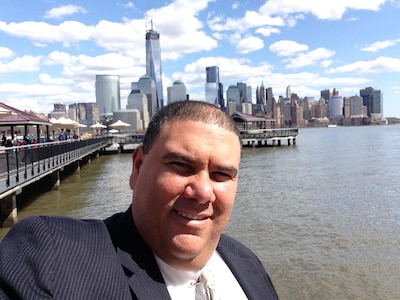
All it took was one interview question for Santiago Taveras to realize he wanted to be a principal again.
Taveras, a former Department of Education deputy chancellor, will be the new principal of the struggling DeWitt Clinton High School in the Bronx this fall.
The position marks a reversal of the trajectory Taveras’s career has taken up to now. After starting his career as a city teacher, Taveras headed several schools before landing a position in the Department of Education’s central administration. He was the deputy chancellor for teaching and learning until the department dissolved that division, then served as the city’s first and only community engagement czar.
Taveras left the department at a time of turmoil in April 2011, just days before Cathie Black’s brief tenure as chancellor ended. He became a vice president at Cambridge Education, the consulting firm that conducted the first quality reviews in New York City schools, which Taveras oversaw while at the department.
But in recent months, Taveras said he wanted to work directly with students again, so he interviewed for a schools superintendent job in New Jersey.
During the interview, he was asked to describe the most gratifying work he had done in his career. Taveras talked about a group of 10 students he mentored when he was a teacher at Central Park East Secondary School in East Harlem.
“Those 10 boys taught me more about life, about the struggles of young men, than I had ever learned from my two master’s and bachelor’s degrees,” he said. “I started getting emotional during the interview, and I was thinking to myself, ‘What am I doing trying to be the superintendent of a school district when I know for a fact what I want to do is be closer to students?'”
Taveras called his old colleagues at the Department of Education and asked what he needed to do to become a principal again. He said Chancellor Dennis Walcott was kind enough to “grandfather” him into the principal pool, and a week later Chief Academic Officer Shael Polakow-Suransky offered him the job at DeWitt Clinton.
Taveras said he knows there’s a lot of work to be done at the high school, which was considered for closure this past year due to dismal progress reports and is now set to shrink substantially while also sharing space for the first time. He has spent the last couple of days at the school listening to teachers’ and students’ concerns and so far has three main priorities for the improvements he wants to make.
First, he said he wants to build up the school’s technology infrastructure. He also wants to set up professional learning teams to help teachers better understand the new teacher evaluation system and how to align their instruction with the Common Core learning standards. Taveras also wants to rebuild school morale to counteract the negative reputation that many have of DeWitt Clinton today.
Taveras has experience closing schools, after heading South Bronx High School after the city decided to phase it out in 2001. And he has even more experience opening new schools: He was the founding assistant principal of East Side Community High School, and the founding principal of both Banana Kelly High School and the Urban Assembly Academy for Careers in Sports.
But taking over a school with a long and storied past and trying to turn it around after a period of decline so that it becomes a school that students want to attend will be a new challenge.
“You have to come in and get them to buy into your vision,” Taveras said about the staff.When he spoke with teachers on Friday, he said he kept repeating the importance of everyone working as a team otherwise they will not be successful at turning the school around.
“Teachers came up to me afterward and said, ‘I’m on that team, I’m ready to work with you to get this done,'” he said. “That was inspiring… It was something that I was not expecting because of course, I’m somebody new who they don’t know… but I can see there’s an urgency to turn the school around.”
He said he thinks his experience at Tweed taught him that with every decision there are always advantages, disadvantages, and different stakeholders to consider, but at the end of the day, the choice has to benefit the children.
“I don’t think anybody has gone from deputy chancellor back to kids,” Taveras said. “It shows, I believe, one of the reasons I was welcome at Clinton on Friday is that they understand this isn’t about media, this isn’t about anything else other than doing something I’m happy to do, building community, turning schools around, and making people feel empowered about the work they’re doing to teach children.”
